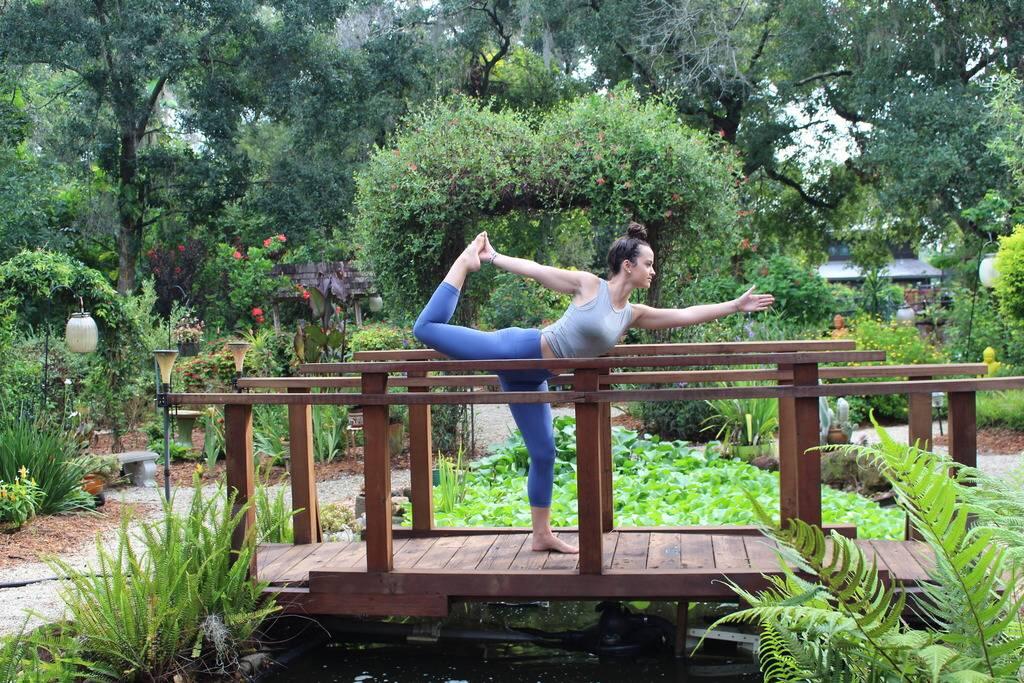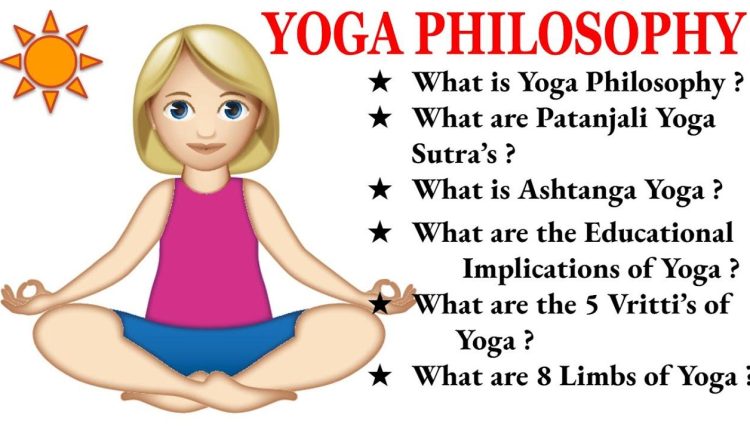In the ever-whirling dance of modern life, where the mind is often a tempest of thoughts and emotions, finding an anchor becomes essential. Enter yoga philosophy—a timeless compass guiding us through the tumultuous seas of existence. Beyond the physical postures and serene breathing exercises lies a profound reservoir of wisdom, cultivated over millennia, designed to fortify the mind and nurture resilience. This ancient tradition offers more than just tranquility; it provides a robust framework for mental resilience, helping individuals navigate the complexities of the human experience with grace and equilibrium. As we delve into the rich tapestry of yoga philosophy, we uncover how its principles can serve as a steadfast ally in cultivating a resilient mindset amidst life’s inevitable challenges.
Cultivating Inner Strength through Yogic Principles
The ancient teachings of yoga offer profound insights into developing a resilient mind, harmonizing body and spirit to withstand life’s inevitable challenges. At the heart of yogic philosophy is the concept of Ahimsa, or non-violence, which extends beyond physical actions to include our thoughts and emotions. By practicing kindness towards oneself, we can cultivate a nurturing internal environment that fosters mental strength. This principle encourages individuals to replace self-criticism with self-compassion, creating a foundation for enduring resilience.
Incorporating Pratyahara, the withdrawal of senses, into daily life allows us to turn inward and reflect, reducing external distractions that often lead to stress and anxiety. This practice promotes a sense of inner peace and clarity, essential components for building mental resilience. Additionally, Santosha, or contentment, teaches us to embrace the present moment and find joy in simplicity, helping to mitigate the impact of external pressures. By integrating these timeless principles, individuals can build a robust mental framework capable of navigating life’s ups and downs with grace and equilibrium.
- Ahimsa: Cultivating self-compassion over self-criticism.
- Pratyahara: Reducing distractions through inward reflection.
- Santosha: Embracing the present moment for contentment.
Harnessing the Power of Breath and Mindfulness
In the tapestry of yoga philosophy, the practice of controlled breathing, or pranayama, and the cultivation of mindfulness play pivotal roles in fostering mental resilience. By engaging with these ancient techniques, individuals can nurture a profound sense of inner calm and strength. The art of mindful breathing encourages a deep connection between the mind and body, allowing one to anchor in the present moment. This anchoring serves as a powerful tool against the turbulent waves of stress and anxiety.
- Enhanced Focus: Mindfulness practices sharpen mental clarity, enabling individuals to concentrate more effectively on tasks and challenges.
- Emotional Regulation: By observing thoughts and emotions without judgment, practitioners learn to manage their emotional responses more constructively.
- Stress Reduction: Regular mindful breathing exercises lower cortisol levels, reducing overall stress and promoting a state of relaxation.
These practices, deeply rooted in yoga philosophy, are not just techniques but lifestyles that empower individuals to face life’s adversities with grace and resilience. Through the synergy of breath and mindfulness, one can cultivate a resilient mindset capable of withstanding life’s challenges.

Building Emotional Fortitude with the Yamas and Niyamas
In the intricate tapestry of yoga philosophy, the Yamas and Niyamas offer profound insights into building emotional resilience. These ethical precepts, akin to the roots of a deeply grounded tree, provide a sturdy foundation for mental well-being. The Yamas, or restraints, guide us in harmonizing our relationships with the external world, encouraging us to practice non-violence, truthfulness, and non-possessiveness. By cultivating these virtues, we learn to navigate life’s challenges with grace and poise, reducing the emotional turbulence that often accompanies interpersonal conflicts.
- Ahimsa (Non-violence): Encourages compassion and empathy towards oneself and others.
- Satya (Truthfulness): Fosters authenticity, allowing us to confront and accept our emotions.
- Aparigraha (Non-possessiveness): Helps release attachment, easing emotional burdens.
Meanwhile, the Niyamas, or observances, focus on nurturing our inner world. Practices like contentment and self-study empower us to build a robust inner landscape, resilient to external upheavals. By embracing these principles, we cultivate a profound sense of self-awareness and acceptance, fortifying our emotional core against life’s inevitable ups and downs.
- Santosha (Contentment): Encourages finding joy and peace in the present moment.
- Svadhyaya (Self-study): Promotes introspection and understanding of one’s emotions.

Practical Techniques for Integrating Yoga into Daily Life
Embracing yoga philosophy in daily routines involves more than just physical postures; it encompasses a holistic approach that nurtures mental resilience. Here are some practical techniques to weave the essence of yoga into everyday life:
- Mindful Breathing: Integrate conscious breathing into your daily activities. Whether you’re stuck in traffic or waiting for your coffee, take a few moments to focus on your breath, allowing it to anchor your mind and calm your nervous system.
- Morning Intentions: Start your day by setting a positive intention or mantra. This practice, rooted in yogic tradition, helps align your thoughts and actions with your deeper values, fostering a resilient mindset throughout the day.
- Gratitude Journaling: Dedicate a few minutes each day to jot down things you are grateful for. This exercise cultivates a positive outlook and helps build mental fortitude by shifting focus from challenges to blessings.
- Mindful Eating: Turn meals into a meditative experience by savoring each bite and appreciating the nourishment. This not only enhances digestion but also fosters a mindful approach to life’s daily routines.
By embedding these practices into the fabric of daily life, individuals can harness the transformative power of yoga philosophy to enhance mental resilience and overall well-being.

